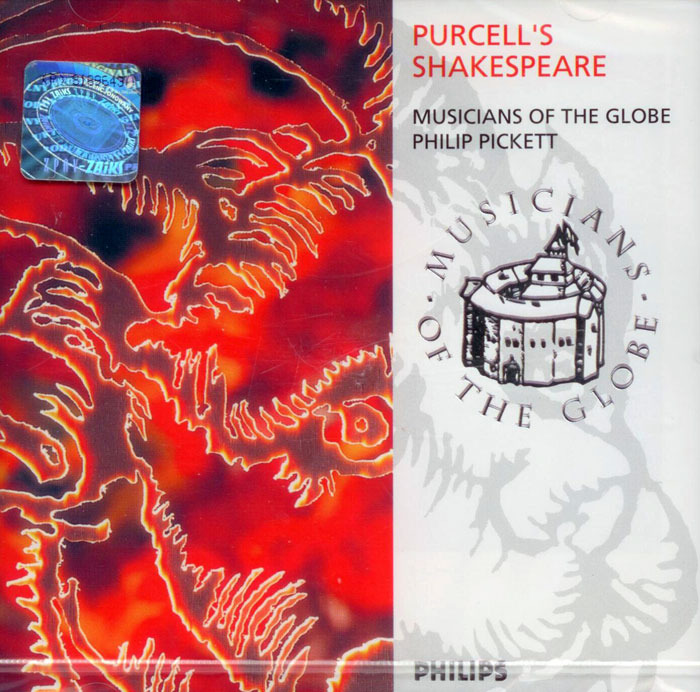Logowanie
OSTATNI taki wybór na świecie
Nancy Wilson, Peggy Lee, Bobby Darin, Julie London, Dinah Washington, Ella Fitzgerald, Lou Rawls
Diamond Voices of the Fifties - vol. 2
Tylko 1000 egzemplarzy!!!
DVORAK, BEETHOVEN, Boris Koutzen, Royal Classic Symphonica
Symfonie nr. 9 / Wellingtons Sieg Op.91
nowa seria: Nature and Music - nagranie w pełni analogowe
Petra Rosa, Eddie C.
Celebrating the art and spirit of music - vol. 3 - Pure
warm sophisticated voice...
Peggy Lee, Doris Day, Julie London, Dinah Shore, Dakota Station
Diamond Voices of the fifthies
Tylko 1000 egzemplarzy!!!
SAMPLER - STS DIGITAL, Buddy Tate, Milt Buckner, Walace Bishop
Jazz Masters - Legendary Jazz Recordings - v. 1
proszę pokazać mi drugą taką płytę na świecie!
Chesky! Niezmiennie perfekcyjny
Winylowy niezbędnik
ClearAudio
Double Matrix Professional - Sonic
najbardziej inteligentna i skuteczna pralka do płyt winylowych wszelkiego typu - całkowicie automatyczna
PURCELL, Philip Pickett, Musicians of the Globe
Purcell's Shakespeare
- Philip Pickett - conductor
- Musicians of the Globe - orchestra
- PURCELL
Music with Shakespeare connections by Purcell, including the masque in Timon of Athens, excerpts from The Fairy Queen and the Witches’ Cave scene from Dido and Aeneas as it might have sounded in a professional theatrical version of 1700, with a baritone Sorceress, slide-trumpets, timpani and double-bass ********* The link between Shakespeare and Purcell is several times removed from the oft-purported and erroneous conception that England's Orpheus was forever setting the Bard to music. Whilst Shakespeare's plays enjoyed revivals, such Restoration drama and 'opera' (for which Purcell provided inspirational parentheses) unashamedly gutted the interior and left the facade. For one, Shakespeare's A Midsummer Night's Dream is but a distant blood relation of The Fairy Queen; the question of whether Purcell restores Shakespearian shadows with his puckish instrumental music is an agreeable, if a decidedly romantic idea. Just to rub it in, not even Purcell's famous "If music be the food of love" is original Shakespeare but rather — after the first line — the verse of Colonel Henry Heveningham. Even so, few would dissent from the claim that Purcell is "Our musical Shakespeare," if only for his extraordinarily sympathetic response to verse, arguably as great as any English composer's subsequent efforts. For the purposes of the Musicians of the Globe, Purcell's professional contact with the Shakespearian context is the prime raison d'être here, not the process of selecting works whose characterization recalls Shakespeare in its glorious acuity: if Purcell is "Our musical Shakespeare", then surely "Saul and The Witch of Endor", with its intensely heart-rending and concentrated narrative, is a rather less specious spiritual heir of Shakespeare's than Act 2 scene 1 of Dido and Aeneas, whose inclusion seems to rest on having 'punctuated' an adaptation of Measure for Measure (though doubtless one can find strong Shakespearian allusions too)? For all that, The Witches Scene is where this recording brutally grabs the attention: with four slide-trumpets and drum in attendance, and a bass for the Sorceress (as it may have been performed in Lincoln's Inn Field Theatre in 1700), this is a striking interpretation. Roderick Williams's decisive and portentous singing complements an unusually resplendent palette, a version probably last heard eight years ago in the last, sadly now-defunct, Early English Opera Festival. Other highlights include some fine solo singing in the mouth-watering Act 2 Masque of The Fairy Queen, delectably paced by Pickett, and some impressive instrumental contributions throughout. The inspiration for this project — or how it has been interpreted — may have delimited it in one sense, but the best moments here are atmospheric in a theatrical manner of which the Bard would have been proud. -- Gramophone [2/1998]





























